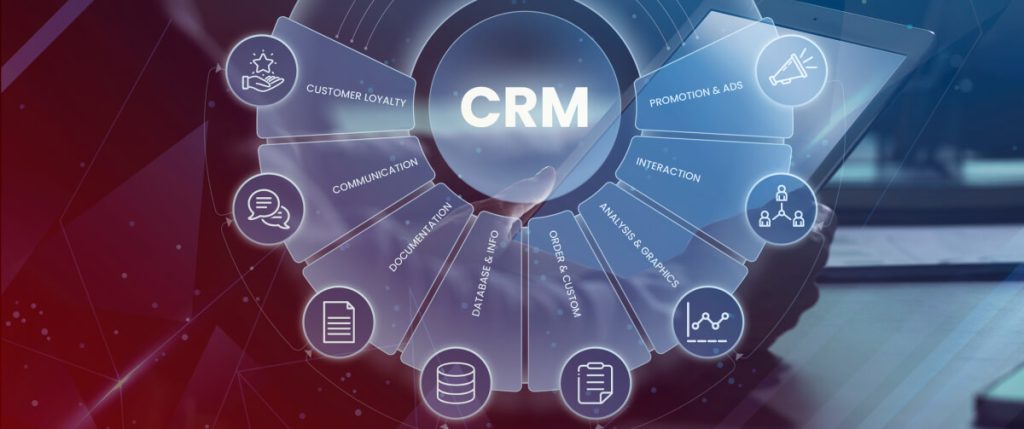Introduction
Best CRM software has become an irreplaceable part of the business world welcomed by both big companies and small businesses. In today’s cut-throat competitive environment, establishing solid connections with customers has been assumed to be the key factor for running a successful business. A comprehensive CRM lets you organize information and handle lead generation, to build a customer base, and in the long run, scale your business.
Indisputably, the vast majority of the options in CRM (Customer Relationship Management) Software available on the market may lead to a feeling of being lost. This end-all guide will give you the knowledge and the tactics you need to pick the right CRM system for your particular business requirements. We’ll go into detail about essential considerations, explore the main operability side of things, and answer widely spread FAQs for you to be confident in your choice.
Understanding Your Business Needs: The Foundation for Choosing the Right CRM
Getting clear into what your business needs in terms of CRM software is primary before you begin your journey of choosing the software. Instead of just thinking about the problem, look deep into yourself to find out a suitable solution.
- What is the size and structure of your business?
(e.g., small business, enterprise, multiple teams) - What are your core business goals?
(e.g., increase lead generation, improve customer retention, boost sales) - What departments or teams will be using the CRM?
(e.g., sales, marketing, customer service) - What customer interaction channels do you use most frequently?
(e.g., phone, email, social media) - What is your budget for CRM software?
The questionnaire you will answer gets you a roadmap for feature identification of CRM that is in direct link with the challenges you face and therefore help you achieve your objectives.

Essential Features to Consider in the Best CRM Software
CRM software has a complex set of functionality, but the majority of companies choose a few core functions:
- Contact Management: A well-developed CRM acts as a singular entry for all the customer information and it also takes care of the management. The information includes contact particulars, a summary of interactions, and communication preferences.
- Lead Management: Convert leads collected from multiple platforms, develop them through the sales funnel, highlight ones that deserve your attention, and track conversion rates.
- Sales Automation: Automate mundane tasks such as follow-up emails, appointment setting, and report generation using computers. In this way, the effort of the sales team will see a reduction.
- Opportunity Management: Monitor deliveries of the sales pipe, compose quotes and proposals, and depending on results set future sales forecasts.
- Marketing Automation: Ensure that you segment your customer base, execute precise marketing campaigns, track the success of your campaigns, and see how these are performing to focus your marketing objectives to produce high profits.
- Customer Service Management: Have your customer contact by introducing a system that involves a ticket system, live chat apps, and case management tools.
- Reporting and Analytics: Profit from such useful conversations about customer behavior and preferences, sales rates, marketing tactics effectiveness, and so on.
- Integrations: Be certain that the CRM application can play nicely with the existing business tools that you are using, such as accounting software, marketing automation platforms, and email marketing tools.
Beyond the Basics: Unveiling Additional CRM Functionalities
As a list of major elements is essential, some CRM software, though, may include more features that might be beneficial in practice for your company. Below I present a few of these cases:
- Social CRM: Track social media discussions, uphold relations with leads and clients, and implement right-on-target online marketing within the CRM platform.
- Project Management: Run live functionality of client projects by leveraging features of task management, collaboration tools, and document sharing.
- Mobile CRM: Navigate and control your customer information such as leads or opportunities in a mobile app for great freedom and liberty.
- Artificial intelligence (AI): Take advantage of AI-driven features for performing activities such as converting leads into prospects, detecting customer sentiments, and providing personalized marketing suggestions.

Exploring the CRM Software Landscape: Unveiling Your Options
Since you have the vision of your enterprise in mind and identified the features required, you can now devote your time to looking into available CRM software on the market. Explore these links if you are searching for an explanation:
- Software Review Websites: Some of the famous software websites compare and contrast the CRM software of multiple companies. Hunt for reliable resourceful resources famous for their trueness and depth in their reviews.
- Industry Publications: Trade magazines frequently write articles on or reviews of CRM software that might be used in your particular field of work. For you, remember subscription to Magnetic Means may be an excellent solution to reach those awesome pieces of information, and dig deeper once or twice into their archives.
- Vendor Websites: Go over the websites for CRM software providers in the research mode. Find out features, pricing, and free test facilities to know the software better before finally enrolling for it.
Conclusion
No CRMs are perfect, but it involves finding the one that works best for you. By appreciating what your business is all about, undertaking comprehensive research, and making informed decisions concerning the factors stipulated, you can select the most appropriate screening company. The perfect CRM will be so handy in the business workflows and will give you the power to nurture and prolong customer relationships and ultimately, help and drive your business to grow.
Spend on CRM software to let your sales-to-sales curve grow new, sales opportunities sprout and climb higher the ladder of success.
FAQs
1. Are there any affordable CRM software options available?
Absolutely! Both small and large businesses are offered CRM solutions to suit their needs and their specific financial resources. Many providers are bringing up different tiers of pricing plans which are incorporated with different functionalities. Another aspect of CRM platforms is the availability of free trials or freemium plans where you can assess the software without making any upfront commitments.
2. What if my team is hesitant about adopting a new CRM software?
- Ask your team to choose and let them start the selection process.
- Together with the proper training and ongoing support staff should develop the necessary skills to confidently use the software at hand.
- Address all the questions that your team members may have and show how the CRM can help in their day-to-day work and in the organization as a whole.
3. How can I ensure successful CRM software implementation within my business?
- Create an implementation plan with the specific missions and small deadlines that you think are to be executed in the given period.
- Tailor CRM software to meet the unique business operations of your company. Create your work by paraphrasing this one! As part of our content plan, we will implement a combination of platforms and techniques to ensure that our message reaches our target audience. Social media will play a major role in spreading our message, as it reaches millions of users every day. So, we will create content that suits each platform.
- Make sure that your team gets adequate training and support all the time.
- Keep an eye on the CRM adoption rate and monitor essential metrics for an effective measurement of the usefulness of the system.
4. How often should I re-evaluate my CRM software needs?
Along with the expanding business, and intensive usage of CRM systems, the expands also. It is essential to keep checking whether your software is still in line with your expectations to make it effective.
5. I’m still unsure which CRM software to choose. What should I do next?
- Reap the benefits that vendors who offer free trials for their software can provide by trying out different software tools and experiencing their functions hands-on.
- Checking reviews and comparisons of different top CRM tools from trusted sources would be good.
- Receive more insightful feedback by going directly to the vendors and informing them about your particular requirements and requests to see how their product can work for you.




